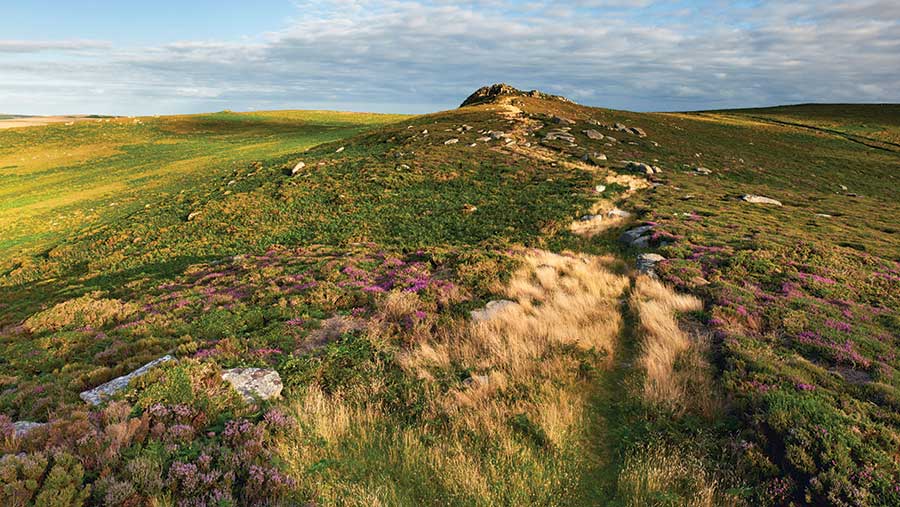Natural England accused of ignoring own rules on Penwith SSSI
 © Helen Dixon/Alamy Stock Photo
© Helen Dixon/Alamy Stock Photo Farmers in west Cornwall say Natural England’s decision to turn Penwith Moors into a heavily protected nature conservation area threatens their livelihoods.
The government body confirmed 3,044ha in Cornwall as a site of special scientific interest (SSSI) at a public meeting held at St Ives on Wednesday 28 June.
The decision means about 300 farmers face a lengthy list of restrictions on their ability to farm, including stock levels, planning restrictions and limits on vehicular activity.
See also: Anger after Natural England confirms Penwith Moors as SSSI
Natural England (NE) recently published plans to designate a further 22 SSSIs across England, make extensions to six national nature reserves and create four additional areas of outstanding natural beauty.
One farmer said: “If Natural England gets away with that they have done here in Penwith, amidst unprecedented levels of opposition and using evidence which is a decade old, farmers across the UK should be on their guard that this can happen to them with deeply insufficient safeguards that are wholly internal to the process and with no external oversight.”
Procedural safeguards
During the meeting, objectors raised concerns about “procedural safeguards” written into NE’s standing orders to protect against defects in the process, including a three-month statutory period to file objections.
Local MP Derek Thomas revealed 14 owner-occupiers in his constituency were not notified by NE in October 2022.
Farmers Weekly understands at least six more people are yet to contact him. Therefore, at least 10% of owner-occupiers were not afforded the three months required by law to make submissions.
Another “safeguard” states owner-occupiers must be “given sufficient scientific evidence” to inform them of the reasons a site is designated.
During the meeting, it emerged that 23 out of 123 habitat surveys did not include all of the necessary maps.
Ten habitat surveys did not even include any maps to inform affected parties of locations for the three specific habitats NE sought to designate.
Personal interests
Additionally, NE’s own standing orders require declarations of interest from both the board members and any NE staff who attend the meeting.
Before the meeting, chairman Tony Juniper was handed a petition that listed seven board members and concerns about declaring their personal interests.
Attention was drawn to standing order 11.3, “the extent to which a perception of bias might exist such that any Board decision might be compromised”.
Only one board member on the list declared their interests as recorded by the petition. The petitioners claim that, contrary to standing order 11.7, none of NE’s staff declared their interests.
In a statement, Mr Juniper said: “This was a complicated and difficult decision for the Natural England board, but in the end we decided that the balance of evidence confirmed that these moors and downs should be a SSSI.”
Farmers Weekly can reveal that a number of organisations and individuals who are aggrieved by NE’s decision are reviewing the grounds to issue a judicial review claim.
Ancient watercourses to be controlled
Natural England’s designation includes a list of 25 restrictions on daily activities, including manure and lime spreading, the use of vehicles or craft and modification to watercourses.
Sam Nankervis, who manages a herd of suckler cows at Zennor, said the farm’s water supply comes from a natural spring, which supplies his cows and the home.
But Natural England (NE) has told him he must sign a consent form every five years to use the water on his own land – or risk legal action and fines.
“They say it is unlikely they would refuse us water,” said Mr Nankervis. “But they could not guarantee this would be the case next time round.”
A fifth of the consents NE has imposed on owner-occupiers at Penwith Moors relate to controlling the flow of water.
